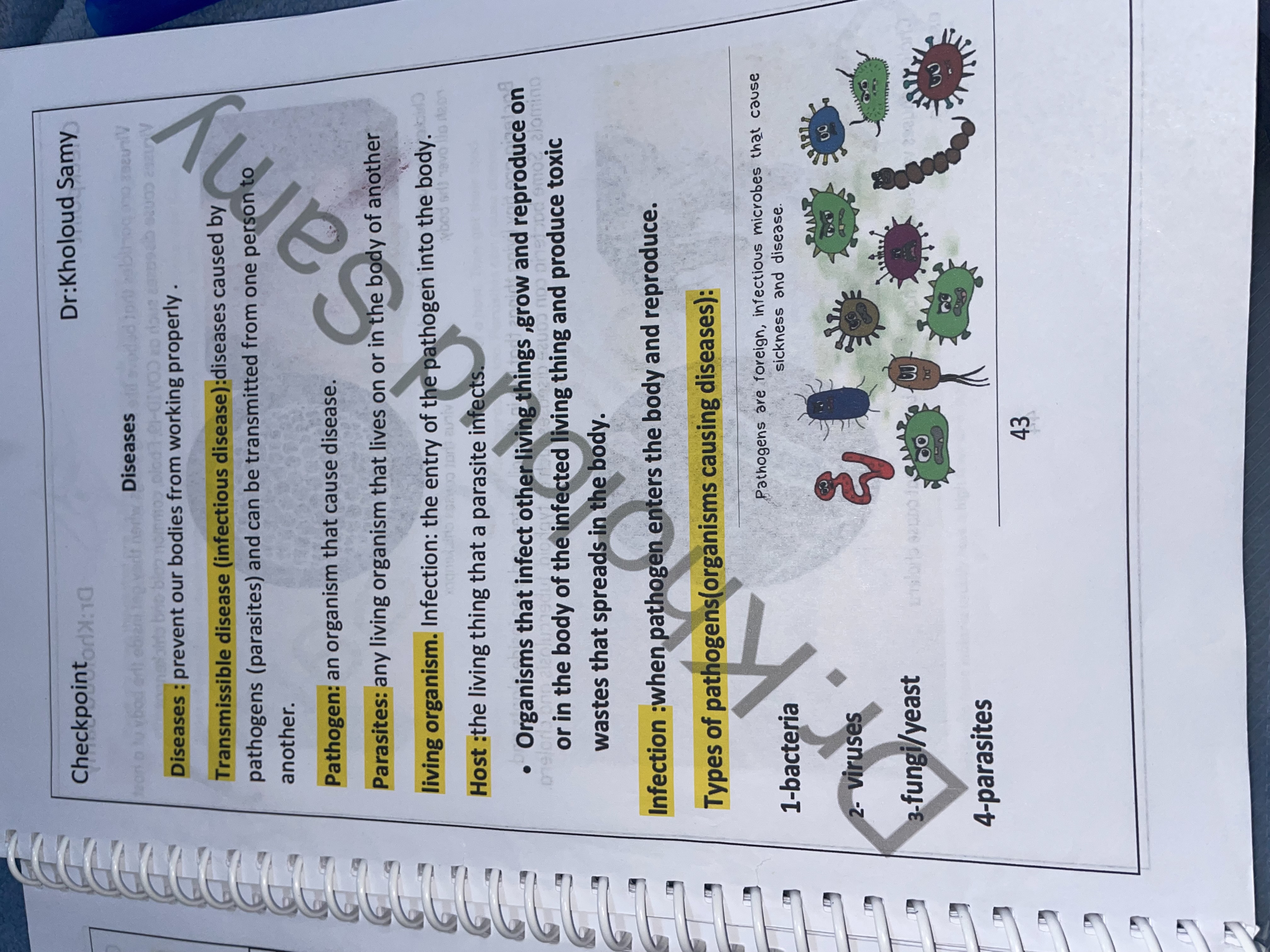What are the different types of pathogens that cause diseases and their definitions?

Understand the Problem
The question is asking about different types of diseases caused by pathogens, specifically focusing on transmissible diseases and their definitions, including the roles of pathogens, parasites, hosts, and infection.
Answer
Bacteria, viruses, fungi/yeast, and parasites cause diseases.
The main types of pathogens that cause diseases are bacteria, viruses, fungi/yeast, and parasites. These pathogens can lead to infectious diseases that are transmissible from one person to another.
Answer for screen readers
The main types of pathogens that cause diseases are bacteria, viruses, fungi/yeast, and parasites. These pathogens can lead to infectious diseases that are transmissible from one person to another.
More Information
Pathogens are diverse, and their severity depends on the organism and the host's immune response.
Tips
Common mistakes include confusing non-pathogenic microbes in the body with harmful pathogens.
Sources
- What is a Pathogen? 4 Types and How They Spread Disease - healthline.com
- Pathogens: Types and How to Defend Against Them - Verywell Health - verywellhealth.com
AI-generated content may contain errors. Please verify critical information